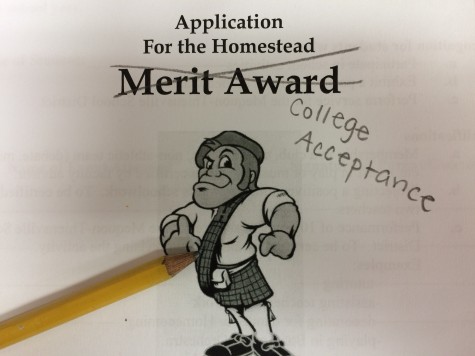Merit Award: Community service or college acceptance?
Do students do community service for the pleasure of doing a good deed and bettering society? Forget about it! Do students do community service so they can put it on their college application? Done and done. Merit Award service hours have the best intentions, but the students, on the other hand, do not.

April 6, 2015, marks the deadline for Homestead participants to complete and turn in their Merit Award applications to the counseling office.
“Honestly, I do Merit Award because it’s one more thing to put on my college application,” Eleanor White, sophomore and 2-year participant of the Merit Award program, said. Merit Award is a program at Homestead and at other participating high schools around the nation that seeks to better each individual student by offering recognition for their volunteer work within the community. Common phrases such as, “It’s so much work,” and “How do they expect us to finish this?” are common as Homestead students approach the deadline to prove they’ve completed the “laborious” ten hours of community service they’ve had seven months to do.
A Homestead survey showed that 88% of surveyed students would not partake in Merit Award if there was no prize or certification to put on college applications. Colleges, how excited are you to be getting such willingly philanthropic applicants in the coming years?
According to Teague Scanlon, writer for the CavsConnect,“Seldom do students provide community service out of a passion for helping [when applying for college].” Students feel immense pressure during their junior and senior years leading up to the application process, and Merit Award has worked its way into the “I have to do it, but I really don’t want to” category.
Whatever the excuse, ranging from sports practice to too much homework, students should still be able to fulfill ten hours of community service, attend four school activities, participate in one club or sport, commit to five hours of wellness activity and get two teachers to like them enough between September and spring break. In a New York Times article, “The Logic of ‘Mandatory Volunteerism,'” Emily Fried, an 18-year-old senior at Roslyn High School, said, ”If it was not mandatory, I never would have looked into doing it.” Hey, at least colleges can count on the students to be honest.

Hi! I am a senior at Homestead, and have been in Highlander Publications since my freshman year. I am on the Homestead varsity swim team, president of...





